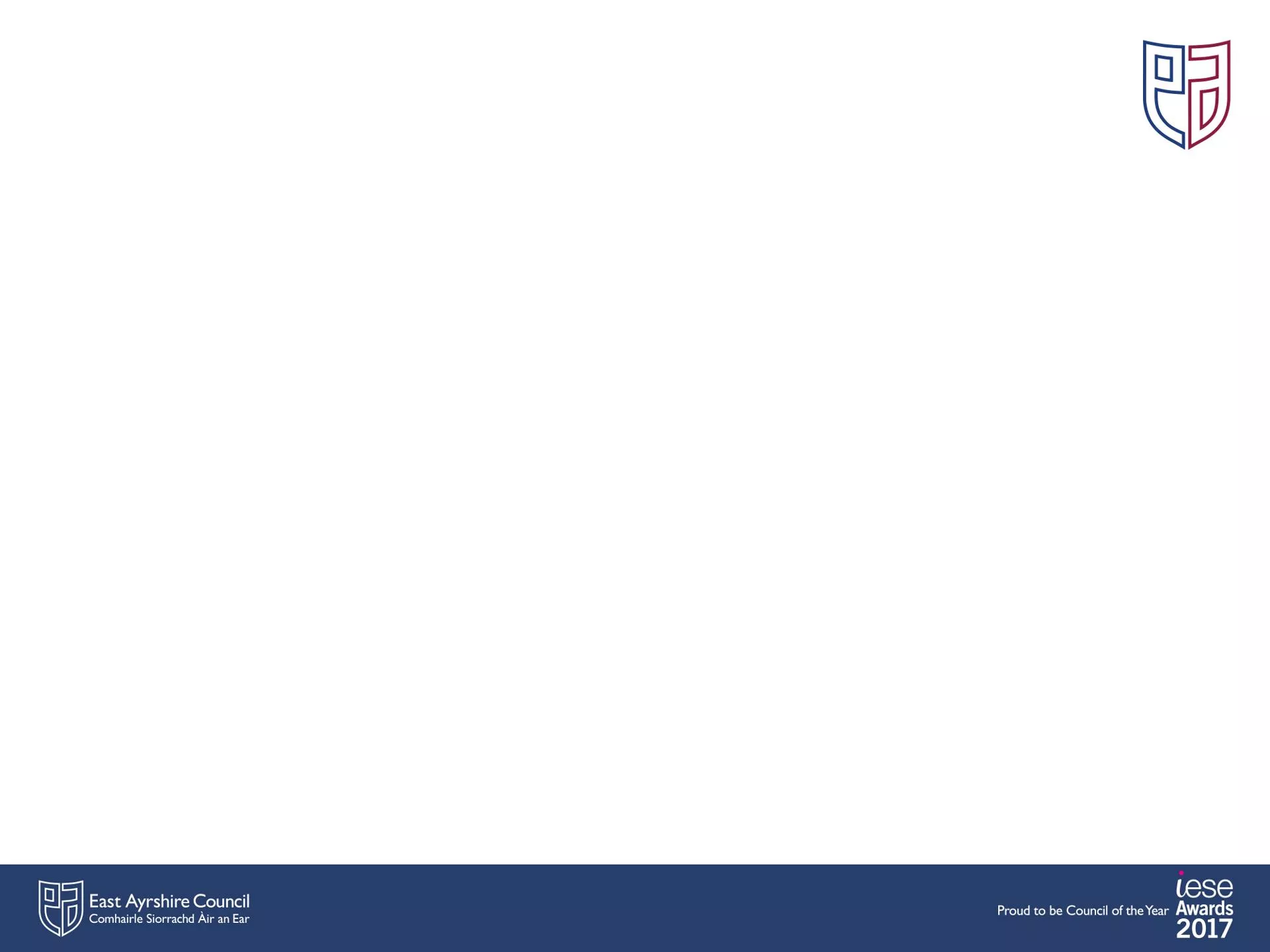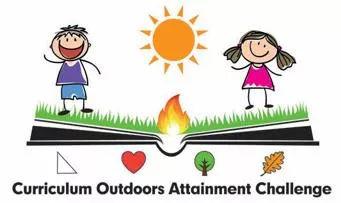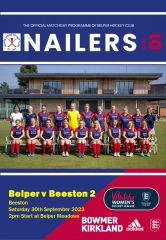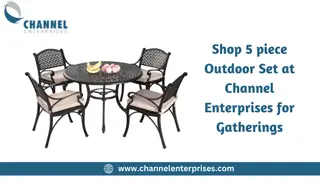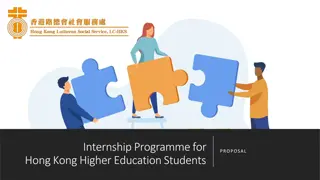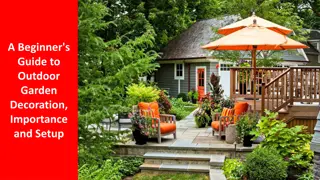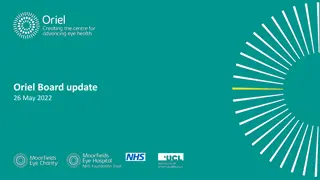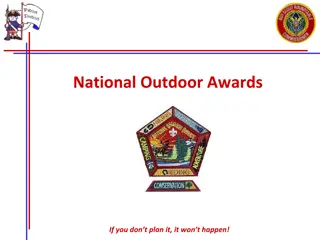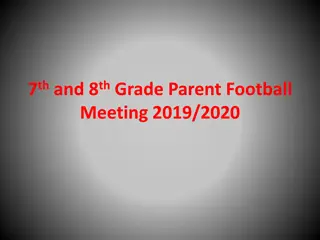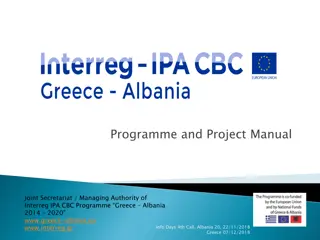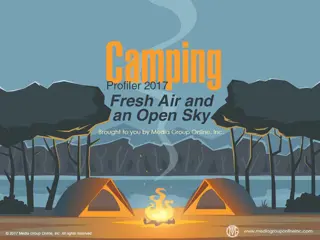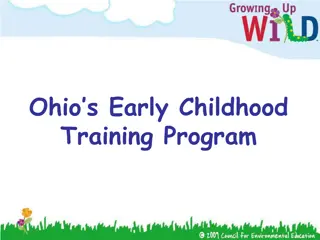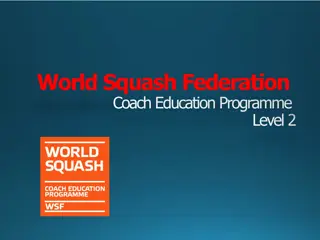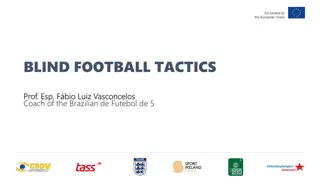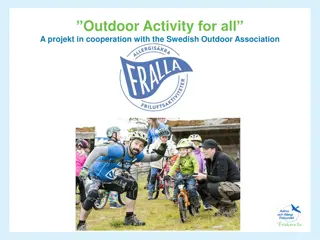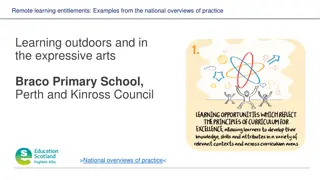Enhancing Outdoor Learning with COACh Programme
Supporting teachers in incorporating outdoor learning into their curriculum, the COACh programme aims to connect classroom learning with real-world experiences. Through capacity building, research, parental engagement, partnerships, and resources, educators work on enhancing provision and making meaningful connections for students. Components are implemented concurrently over an academic year, with inputs delivered each term, overcoming barriers and promoting holistic development.
Download Presentation

Please find below an Image/Link to download the presentation.
The content on the website is provided AS IS for your information and personal use only. It may not be sold, licensed, or shared on other websites without obtaining consent from the author.If you encounter any issues during the download, it is possible that the publisher has removed the file from their server.
You are allowed to download the files provided on this website for personal or commercial use, subject to the condition that they are used lawfully. All files are the property of their respective owners.
The content on the website is provided AS IS for your information and personal use only. It may not be sold, licensed, or shared on other websites without obtaining consent from the author.
E N D
Presentation Transcript
Curriculum Outdoors Attainment Challenge (COACh) Natalie White Learning Outdoors Support Team East Ayrshire Council @natsywhite @eaclost
Curriculum Outdoors Attainment Challenge Pilot project Innovation Fund 2016-17; 7 primary schools and 2 control schools Roll out Scottish Attainment Challenge 2017-19 34 primaries, 2 secondary
National Improvement Framework and COACh Assessments to guide support needed and track progression Whole school CPD, lead teacher opportunities, positive ethos Supporting SMT with SIP, HGIOS4, National Policy Building staff capacity, linked to GTCS standards, PU and PR Evidence collected to support and inform teachers professional judgements Parents events, parental support, parent information leaflet
What is COACh? This programme has been put together to support teachers in embedding outdoor learning as a realistic context for learning. It aims to enhance provision and make meaningful connections for pupils between classroom learning and their self, community and environment. There are five components to the programme; 1. Building Staff Capacity 2. Research 3. Parental Engagement 4. Partnerships and Wider Achievement 5. Resources Each of these components are worked on simultaneously over an academic year, with inputs delivered each term.
1. Building Capacity 1. Whole school CPD 2. Team Teaching with 3 teachers from early, first and second level 3. Lessons in Literacy, Numeracy/Mathematics and Health and Wellbeing, delivered with class over the year 4. Progression of place context 5. Barriers overcome
1.1 Whole school CPD All establishment staff attend CPD session. @fenwickprimary
1.2 Team Teaching Behaviour management Pedagogical approaches Follow up back in class How to assess Metacognition Lesson plans
1.3.1 Literacy Listening and Talking sharing stories, listening to set texts, discussing characters and plots, collaborating to build dens, re-telling journeys Writing creating characters, inventing stories, using adjectives to describe scenes/events, writing journal entries on personal experiences, functional writing, instructional writing Reading Listening to stories then re-reading passages when they return to school, reading fact sheets and using keys to identify trees, bugs and lichens.
1.3.2 Numeracy and Mathematics Angles around us in our environment, building most effective dens Vocabulary ordinals, measurement Number forwards and back, calculations Shape properties, 2D, 3D
1.3.3 Health and Wellbeing Physical Activity and Active play normalise outdoors Green connections Reading nature Physical activity Personal and Social development Grey space for 1:1/nurture Pupil led learning intrinsic motivation Awe and wonder
1.5 Barriers to overcome Identifying greenspace Beyond your boundary SNH Big Steps Using risk assessment and EVOLVE Additional helpers Equipment wellies, jackets Resources
2. Research 1. Evidence/Policy to support OL 2. Evidence for Literacy and Numeracy 3. Evidence for Leadership and Capacity Building 4. Action Research
2.1 OL Policy and Research Curriculum for Excellence through Outdoor Learning How Good Is Our School 4 GTCS Standards 3.1.3 Vision 2030 entitlement to LfS experiences 3-18 Biophilia Bird, RSPB
2.2 Evidence for LIT and MNU/MTH Taken from SSLN for East Ayrshire results 2015-16 Assessments in Literacy -Listening and talking, tools for reading, Writing creating texts, following instructions and increase in vocabulary Assessments in Maths number processes, fractions, decimals, measurement, shape, angles and symmetry
2.3 Research on Leadership Brody, D. & Hadar, L. (2015) Teachers at different times in the career will be more open and engaged in CPD Davis, J. (2013) Creativity stems from autonomy, openness, supportive structures and collaborative relationships Lunenburg, F. and Lunenburg, M. (2015) Team development; forming, storming, norming, performing and adjourning. Sondergeld, T. A., Milner, A. R. & Rop, C. (2014) Teacher knowledge increase leads to better learning (Enfor ed) Stein, M. & Nelson, B.S. (2003) Respect of Leadership Content Knowledge Tuytens, M. & Devos, G. (2014) Factors affecting Teacher engagement in evaluation then impacting T/L ; charismatic leadership, Leadership content knowledge, active leadership support, job experience and teacher collaboration Outdoor Learning has a positive impact on teachers; Teaching Practice (79%) Health and Wellbeing (72%) Job Satisfaction ((69%) Professional Development (69%)
2.4 Action Research P7 Applies verbal and non-verbal techniques in oral presentations and interactions clearly, for example, eye contact, body language, pace and/or tone. 4 Average Score (0-4) 3 2 1 0 Pre Post Time Point Experimental Control P4 Listens and responds appropriately to the views of others, for example, by nodding or agreeing, asking and answering questions in a respectful way. P1 Follows simple instructions. 4 Average Score (0-4) 3 4 Average Score (0-4) 2 3 1 2 0 1 Pre Post 0 Time Point Pre Post Time Point Experimental Control Experimental Control
2.4.2 Action Research Numeracy Results P1 Number & number processes P4 Fractions, Decimal Fractions & Percentages 100% Average Score 100% Average Score 50% 50% 0% 0% Pre Post Pre Post Time Point Time Point Experimental Control Experimental Control P4 Measurement P1 Fractions, decimal fractions & percentages 100% Average Score 80% 100% 60% Average Score 40% 50% 20% 0% 0% Pre Post Pre Post Time Point Time Point Experimental Control Experimental Control
2.4.2 Action Research cont. Numeracy Results P7 Measurement P7 Number & number processes 100% 100% 80% 80% Average Score Average Score 60% 60% 40% 40% 20% 20% 0% 0% Pre Post Pre Post Time Point Time Point Experimental Control Experimental Control
3.Parental Engagement 1. Parent information letter 2. Parent Council input 3. Parent Leaflet 4. Parent Event 5. Displays
4. Partnerships and Wider Achievements 1. Support materials from wide variety of OL organisations; increase awareness of resources, increases staff knowledge, supports OL sector growth, increase quality experiences for pupils 2. Wider Achievement Awards for all P1 s P4 s and P7 s
4.2 Wider Achievements All P1 s (2016/7 - 154 pupils) All P4 s (2016/7 196 pupils) All P7 s (2016/7 210 pupils) CPD sessions for all teachers involved in the process Connections made with organisations
5. Resources 1. Equipment 2. On-going support from LOST 3. Strategic support from external organisations
5.2 Ongoing Support Risk Assessments/ Greenspace support Equipment Lending Extensive CPD programme on Gateway Phone a friend Professional Learning Network of Lead Teachers
5.3 Strategic Support #Brilliantresidentials Set up to support school sleepouts Local organisations given support to engage with schools; Bug life, Coalfield Environment Initiative, Royal Highland Education visits Support with School Improvement plans, Local Authority Strategic Aims


